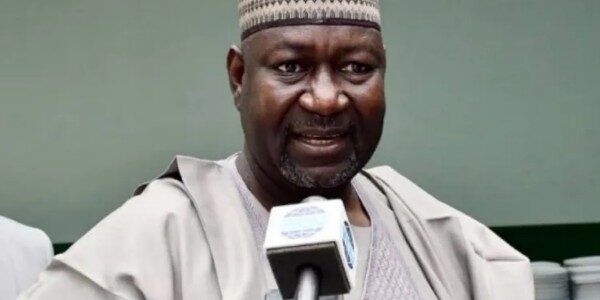
Nigeria’s electricity supply has in the last few weeks gone through a turbulent time with the national grid collapsing twice in barely 36 hours.
This coupled with the inability of power generation companies (GENCOs) to put load on the national grid, inadequate transmission and distribution infrastructures have continued to rob the country of the much-needed energy supply for economic activities.

But the federal government said that it has taken steps to support the Transmission Company of Nigeria (TCN) which manages the grid and the transmission network across the country to improve capacity and maintain grid stability.
As part of an emergency approach to ensure the stability of the country’s grid and power system, the Central Bank of Nigeria (CBN), is currently providing about $250 million (N103 billion) for the rehabilitation of critical interfaces between Transmission and Distribution to increase and stabilize power delivery.

The project, which will strengthen the interface between the TCN and the DisCos is expected to gulped about N103 billion and spread across critical locations in the country.
Stakeholders are however divided, insisting that although interventions in the sector, especially the alignment of the interface between TCN and DisCos remains critical, it was high time to ensure that the sector operates optimally without support from the government.
Recall that the power sector was privatised in 2013 to ensure that power supply to homes and industries improves such that the nation’s economy is energised and government involvement in the sector, especially in terms of funding reduces, reverse however is the prevailing reality as the sector remained epileptic with supply currently hovering at 2000 megawatts.
Minister of Power, Abubakar Aliyu stated that the CBN is already funding a $250 million project to ensure the rehabilitation of critical interfaces infrastructure between Transmission and Distribution to increase and stabilize power delivery. This according to him, is in addition to the Siemens Presidential Power Initiative (PPI) that will bring in additional $2.0 billion or more to the Transmission Grid from the government.
While the grid has continued to fail with two system collapse this week alone, Aliyu said government “is almost $4 billion secured by this administration to augment the Grid. It should be noted that many of these funds are being actively spent and the results will be felt over time.
According to him, the interface projects along others already being embarked upon by TCN brings ongoing projects in the transmission segment alone to 135 ongoing projects with 30 completed key Substation Projects and 12 transmission Lines.
The market operator at TCN, Edward Eje said: “The interface project is aimed at providing quick solutions at various transmission/distribution interfaces where there are challenges.
“This makes sense to me. It is a laudable measure to achieve a seemless and a hitch-free power transmission from the Transmission Stations to the Distribution network.”
The managing director and chief executive officer of Nigerian Bulk Electricity Trading Company, (NBET) Dr. Nnaemeka Eweluka, disclosed that the apex bank was able to identify critical projects that could quickly address and restore normalcy
“So basically what happened was that the CBN has actually performed a very positive role in trying to sort out this electricity market challenges. The CBN is working with TCN and the DisCos. CBN basically asked what are those critical projects that if they are addressed today can quickly yield results in the sector.
“This is even as the Federal Government government is doing this Siemens project and TCN is implementating the report, what are those critical projects that if they are done today, will unlock additional megawatts quickly.
“And so the DISCOs and TCN worked together to come up with a list of some critical projects and I can’t be specific on the amount, maybe we can furnish that subsequently but that is what is happening.’’
He said CBN decided to find those critical interventions so that there could be some quick wins even as the bigger project is being implemented.
An energy expert, Bode Fadipe, stated that one of the fundamental issues in the power sector include poor liquidity, adding that Whilst it is true that one of the expectations of the privatisation programme is that the sector would be self funding so govt would ultimately stop funding it, that benchmark has not been realised.
“It is in direct response to this liquidity challenge that the CBN was brought into the loop. There is therefore sense in the involvement of the CBN in the interface projects between DisCo and TCN,” Fadipe said.
According to him, the gains of the DisCo/TCN funded interface project is huge as it would help to bring more load into the grid and by so doing, more people will be able to receive electricity for their use.
Fadipe stated that quality of supply is also expected to increase because in some locations where the transformers are overloaded, they would be uprated.
A consumer advocate and legal expert, Kunle Olubiyo noted that the continuous intervention while critical shows that the such intervention shows that the essence of privatizing the sector has been defeated, adding, “It is not suppose to be.”
Olubiyo noted that the poor governance system, lack of monitoring, accountability and weak set up of the market were responsible for the financial issues in the sector.
“At this point, we no longer need a prophet to tell us that things are not working.’’
It is a supposedly privatised sector and the essence of it that it is meant to be private sector driven. That is not how it is,” Olubiyo stated.
According to him, there is urgent need to review the sector to ensure that the sector work optimally.
Credit: Leadership
